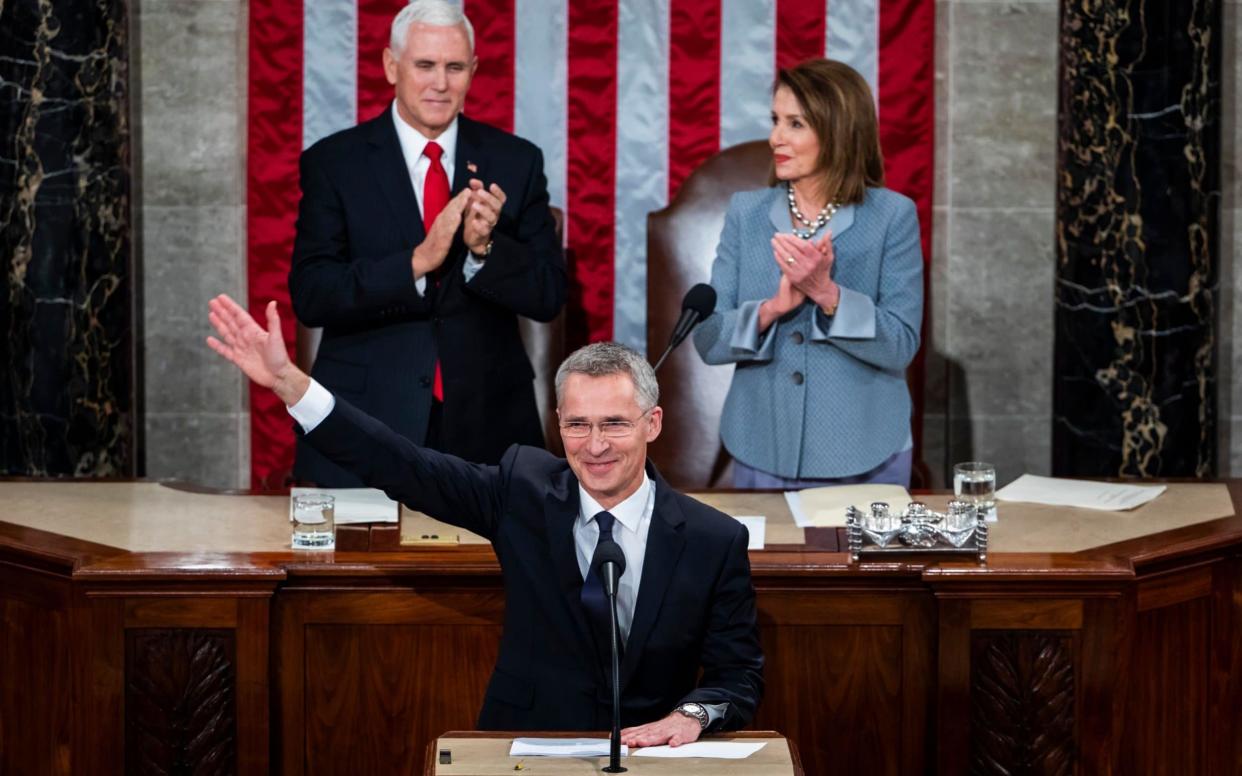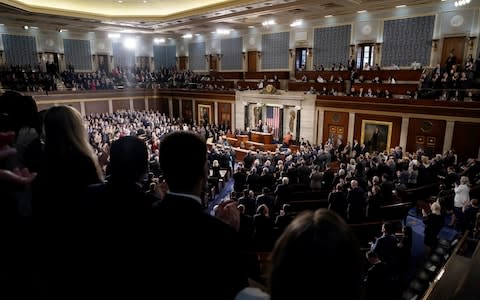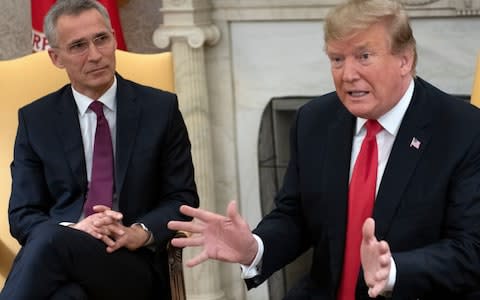Nato chief makes unprecedented pitch to US Congress on need for trans-Atlantic unity

Nato’s Secretary-General Jens Stoltenberg made an unprecedented pitch to Congress for unity amid transatlantic tensions on Wednesday, as he marked 70 years since its founding charter was signed in Washington.
Mr Stoltenberg gave a ringing defense of "the most successful alliance in history," which has often been derided by Donald Trump, the US president.
He used the speech to underscore America’s "enduring support" for the historic alliance and downplayed disagreements with Mr Trump, saying: "Nato has been good for Europe, but Nato has also been good for the United States."
He added: "We have to be frank. Questions are being asked on both sides of the Atlantic about the strength of our partnership. And, yes, there are differences.
"The strength of Nato is that despite our differences, we have always been able to unite around our core task: to defend each other, protect each other, and to keep our people safe".

Members of Congress, who greeted Mr Stoltenberg with repeated cheers and standing ovations, said they viewed his address as a chance to reaffirm the American commitment to the Nato alliance.
His address to a joint session of Congress - a rare honour usually reserved for heads of state - is the first by a Nato chief.
The invitation from Nancy Pelosi, the Democratic House Speaker, and Mitch McConnell, the Republican leader of the Senate, has been seen as a rebuke of Mr Trump and his repeated bashing of the alliance.
An invitation to meet with Mr Trump at the White House was later extended to Mr Stoltenberg.
The Trump administration’s relationship with Nato has been fractious, with the president publicly pressuring other partners to pay their "fair share" in defence spending.
However he acknowledged that Mr Trump’s demand appeared to be paying off, telling the president: "As you just mentioned, after years of cutting defense budgets, Nato allies have now started to invest more. And by the end of next year, they will have added $100 billion more into their defense budgets since you took office."

Mr Stoltenberg also used his speech Wednesday to warn of the threat "a more assertive Russia" posed to the alliance, including its violations of the Intermediate-range Nuclear Forces Treaty.
"Nato has no intention of deploying land-based nuclear missiles in Europe," Mr Stoltenberg said. "But Nato will always take the necessary steps to provide credible and effective deterrence." Mr Stoltenberg’s address is part of a two-day meeting in the US capital for foreign ministers from the 29-member alliance to mark its 70th anniversary.
The celebrations are also intended to show a tough, united front on a resurgent Russia but Mr Trump’s rhetoric is not the only chord of disunity among the allies.
Turkish Foreign Minister Mevlut Cavusoglu insisted Wednesday that his country would push ahead with buying Russia’s S-400 missile defense system.
"The S-400 deal is a done deal and we will not step back from this," he told a think-tank forum in Washington.
Mr Cavusoglu went on to say that Turkey still backed Nato on core concerns with Russia and would never recognise Moscow’s 2014 takeover of Crimea from Ukraine.
But he said Turkey turned to Russia as it could not buy US Patriot missiles and claimed Mr Trump had said in a phone call that his predecessor Barack Obama had made a "mistake" not to sell the system to Ankara.
It was also announced this week that Nato is to fund a $260 million weapons store at an airbase in central Poland to ward off Kremlin aggression.
Mr Stoltenberg said the weapons store, along with improved infrastructure will "underpin the increased US presence in Poland".
Sign up for your essential, twice-daily briefing from The Telegraph with our free Front Page newsletter.

